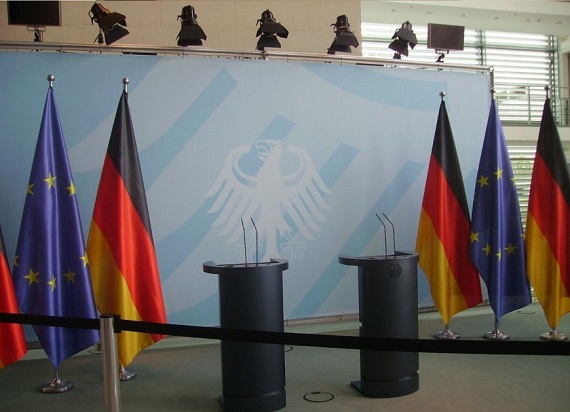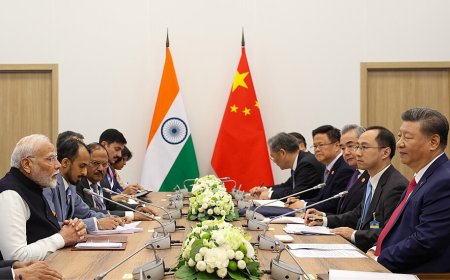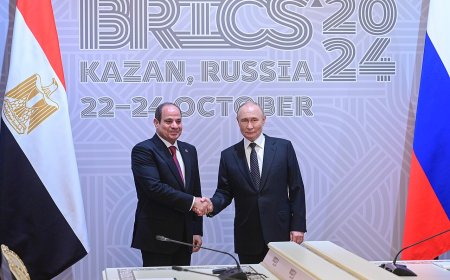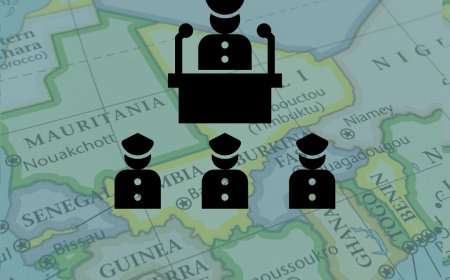This article is part of a series on “What is Germany’s Africa Policy?” The series is edited by Dr. Melanie Müller and Dr. Olumide Abimbola.
Summary
- German foreign policy approach is evolving and especially towards Africa.
- This evolution is reflected in the BMZ’s new Africa Strategy.
- The BMZ’s Africa strategy is the first to reflect concretely the coalition government’s embrace of a feminist foreign policy (FFP) in the international development domain.
- Yet the FFP encapsulated in this specific context still has some policy blind spots that need addressing.
- Overall, this limited adoption of a feminist-informed strategy for Africa shows promise for a more positive orientation in Africa-Germany relations.
Introduction
Over the last decade, Germany has consistently stated its desire to transform its development cooperation policy in Africa. But what is it transforming from, and to what, given the range of approaches across different departments? These questions seem urgent, especially now. On the one hand, German foreign policy is orienting itself towards a ‘feminist’ foreign policy. The Federal Foreign Office has released guidelines for a feminist foreign policy (FFP), and the Federal Ministry for Economic Development and Cooperation (BMZ) has proposed a feminist international development policy and a positive and transformative relationship with the African continent. On the other hand, the European Union (EU), in which Germany plays important leadership roles, has now committed to a more pragmatic geopolitical orientation, most recently codified in the Global Gateway, that does not inspire confidence in the promises of this feminist reflex.
With a new centre left government, it appears that German foreign policy is set to change once more, as outlined in the BMZ’s new Africa Strategy. Moreover, this time, Germany is joining the list of countries that are adopting a FFP. This brief explores the extent to which a FFP marks a change in German foreign policy orientation, including its implications for Africa and in light of the new BMZ strategy.
Germany’s Foreign Policy History in Africa
Although many contemporary analyses have tried to avoid the issue, Germany’s broader foreign policy in Africa cannot be divorced from its colonial history on the continent. Relative to France and the United Kingdom, many see German colonialism in Africa as marginal. Nevertheless, like other colonial powers, Germany implemented policies of forced labour, land expropriation and cultural assimilation, practices that resulted in genocide. After the First World War, Germany lost its colonies and its influence in Africa was significantly diminished.
During the Cold War, German foreign policy towards Africa was constrained by the politics of the conflict between the Soviet Union and the West. Whereas Eastern Germany aligned itself broadly to Soviet policy that supported anti-colonial and anti-apartheid movements in Africa, Western Germany’s approach aligned broadly with other Western interests, especially with respect to anti-communism. It focused mainly on providing economic and technical assistance to African countries and provided development aid for economic growth and stability. On the whole, Germany’s Cold War policy in Africa from the East and the West was limited by the broader dynamics of global politics.
Against the backdrop of that history, nearly a decade ago, a shift in Germany’s approach towards Africa began. This shift did not occur in isolation. Conditions within the international system itself, including Africa’s increasing assertiveness, Germany’s membership in the EU and a desire to counter new actors such as China and Russia, have had implications for the changes visible in recent German relations towards Africa. The chorus on change has become louder, especially since 2014. At the heart of this change is making the approach to Africa more comprehensive.
For example, in a 2014 visit to the African Union (AU), the then Foreign Minister, Steinmeier, made a commitment to supporting the development of African peace and security capabilities at the continental and regional levels. This commitment was accomplished through support for training and financial support. In subsequent years, Africa has continued to loom large in Germany’s development cooperation and foreign policy. During her later years in office, former Chancellor Angela Merkel made the African continent a priority, also during the German Presidency of the G20 in 2017. A range of factors have driven this interest in Africa, not least the so-called migration crisis.
In 2019, the German foreign office published an update to its 2014 Guidelines. The 2019 enhanced partnership with Africa identified areas of importance for Africans within a broader context of Germany’s membership in the EU. In a sense, the current German government has committed to continuing the previous government’s Africa policy and also to deepening ties with the continent. For example, Germany made early commitments to the African Continental Free Trade Area (AfCFTA), the continental flagship programme intended to significantly increase intra-Africa trade. This commitment through the GIZ African Continental Free Trade Area (AfCFTA) Support Programme demonstrates typical support for African-led initiatives.
However, given the focus on trade, the German government’s support is also intended to help decrease the risks of investment by German firms in Africa, as evidenced by its initiation of the Compact with Africathrough the G20. Many of the changes from the German side have, in part, been influenced by the growing agency of African decision-makers in global politics. Additionally, Germany is seeking to correct some of the wrongs of the past including acknowledging the genocide against the Herero and Nama people of present-day Namibia and ostensibly charting a path towards reconciliation, although the legitimacy of this move has been heavily criticised.
In recent years, Germany has sought to prioritise new areas within international development, especially around climate change. Initiatives include funding climate insurance against disasters on the continent and general support for African states through the African Development Bank. Recent German support for climate action in Africa has begun to address some of the criticisms levied against Global North actors for not standing up to their global climate responsibilities.
In 2017, the BMZ declared a new approach to Africa, the Marshall Plan with Africa, centred on peace and development cooperation. It was premised on the idea that Africa and Europe’s futures were interlinked. It leaned on Germany’s European identity to foster relations with African countries. Discursively, this approach appeared to be an attempt to move from a historical quid pro quo of development aid relationships on the continent towards an acceptance of Africans as partners in development cooperation.
The ‘Marshall Plan with Africa’ has been abandoned as a concept. It has given way to yet another strategy for Africa. Launched in January 2023 by the BMZ, the new Africa Strategy, Shaping the Future with Africa, sets up priorities to take Africa-Germany relations regarding development cooperation into the future. Three dimensions are worth noting about the new strategy. First, it aligns itself with the African blueprint for development, Agenda 2063, thus following the African lead on policy priorities. Second, this stance on taking direction from Africa and a more equal cooperation is reinforced by claims of solidarity, ostensibly over imposition. Third, the strategy recommits to development cooperation along the lines of the Sustainable Development Goals (SDGs), to which African countries also subscribe.
Where or how does FFP fit in?
Germany, like many other European states, has committed to adopting a FFP through its proposal for a Feminist Development Policy and the establishment of the Guidelines for a Feminist Foreign Policy released by the German Foreign Office. Like other countries, this version of FFP seeks to challenge gender inequality within global politics. FFP raises the priority of tackling gender inequality, already highlighted by global policy and normative frameworks such as the SDGs and the Women, Peace and Security (WPS) agenda, both of which Germany champions. By adopting such a feminist orientation, Germany claims to foreground human rights as a value of its foreign policy.
Arguably, the addition of ‘feminism’ as part of the new German foreign policy orientation signals a normative shift. On a basic level, such a shift suggests a concern for gender equality as part of a state’s international relations. But Germany already supports gender equality programming in development cooperation. FFP, however, goes beyond promoting gender equality as a cross-sectoral practice. In principle, it requires states to embed feminism across all areas of foreign policy, for example, defence, security, migration, trade, climate change policy, among other areas of international relations. The ethos of feminism ought to challenge the status quo and seek to transform the current systems of foreign policy. In the German context, this transformation has been called the feminist reflex.
Civil society organisations calling for more feminist-conscious international relations have tended to advocate for this topic in so-called soft areas such as international development, which is seen as a relatively low hanging fruit. Germany appears to have heeded this initial call in the approach to Africa as set out by the BMZ. Specifically, it follows the Canadian example of a Feminist International Assistance Policy rather than a fully-fledged foreign policy. Yet, there is also something European about the approach since the priorities are more consistent with the Swedish iteration that focuses on the 3 Rs – rights, representation and resources. Despite the recently released Guidelines, what the Germany version of FFP will be in practice is still aspirational.
Regardless of the ambiguity of practice, the declaration of a FFP is an opportunity to create a reparative foreign policy based on anti-colonialism and anti-racism as core values. The lack of consideration of race and how racial hierarchies are in fact often reinforced in the practices of (feminist) foreign policy simply underline enduring blind spots. In the Guidelines for example, there is one mention of racism in relation to the experiences of Diplomats of Colour, although there are four references to reflecting on Germany’s colonial past.
Yet, because the shift to a FFP provides an important opportunity for Germany to reflect on its foreign policy practice as a dynamic relationship between the Global North and the Global South, engaging with its race and racism in that relationship is essential. The technologies and practices of international relations have not always benefitted the most marginalised within this hierarchical global system. Thus, in the new Africa Strategy, feminist development policy and gender equality are highlighted as focus areas of development cooperation. In light of the operationalisation of the new strategy, it is worth considering what FFP may mean for Germany in Africa.
Making German FFP work for Africa
The first thing to notice about the German FFP approach to Africa, which is focused in the international development realm, is some inconsistency. On the one hand, there is an emphasis of an attitude towards Africa based on: “respect and reciprocity, values and interests, feminist development policy”. In this framing, the whole strategy is targeting development. Yet, when diving deeper, the German feminist development policy only rests on a singular axis of development cooperation that wants to promote gender equality programming but is separated from broader foreign policy approaches to the continent. In this alternative view, there is no feminist aspiration for the other focus areas, which include sustainable economic development, employment and prosperity; overcoming poverty and hunger and building social protection; health and pandemic prevention; rule of law, democracy, human rights and good governance and peace and security. In this sense, this approach is certainly not the whole of a foreign policy approach. It is, however, an honest one since aspiration manages expectations to an extent.
In its conception of feminism for development cooperation, the German approach is also ambitious in its normative intent as it “aims to overcome, in the long-term, structural inequalities, unequal treatment and discrimination. This also involves avoiding racist structures and post-colonial continuities, as well as championing marginalised groups such as people with disabilities, members of indigenous communities and LGBTQI+ individuals and their rights” [1].
In this sense, this approach addresses one of the prior blind spots to FFP – the importance of confronting the structural inequalities that have reinforced hierarchies in the international system to date – racism and the continuities of colonialism. These inequalities are especially important in forging solidarity, partnership and in the context of how Germany engages with Africa and Africans, a position emphasised by the new German administration.
In concrete terms, this conception of a feminist international development policy champions the agency of its recipients in the way that the broader aims of the strategy are aligned to African-informed priorities such as Agenda 2063. Discursively, this new intervention into the relationship with Africa via a feminist-informed development policy orientation is actively seeking to undo the usually exploitative nature of development practice.
This shift notwithstanding, the feminist impetus does not appear to extend outside development cooperation. This omission could be read as managing expectations on both sides. Even as the FFP idea spreads outside Europe, to North and South America for example, no African country has really embraced the idea (exception is Libya). This lack of uptake comes despite high levels of gender inequality and equal advocacy for gender equality on the continent. Many feminist civil society organisations, of course, lobby their governments for feminist principles to be considered in both domestic and international relations. But feminism has yet to be so elevated, suggesting either a reluctance to uptake or an outright rejection of the premise. On the German side, the inattention to feminism in other priority areas within development cooperation comes at the risk of policy incoherence and a roll-back on the potential achievements of a FFP orientation that breaks down structural barriers to a substantive partnership between Germany and African countries.
To maximise the benefits of this political and policy moment (the feminist attitude), feminism as a driver of an anti-racist, fairer and more just engagement with Africa (and Africans), Germany should move towards a more feminist-informed whole in its foreign policy approach. The Guidelines provide an opportunity here, but Africa-Germany relations must engage beyond development cooperation. For Africa in particular, there are a number of ways in which a holistic FFP could play out.
On Peace, Security & Defence – Unlike the BMZ’s new Africa Strategy, the Guidelines for a FFP explicitly deal with the peace, security and defence policy domain. And yet, this domain matters even more in the broader context of Germany’s engagement with Africa. There must be more support for initiatives driven by Africans, especially civil society, to resolve violent conflicts and also micro conflict, particularly as they exacerbate marginalisation of women and LGBTQ+ folks. Conflict, although often disrupting existing gender structures, also has a habit of reinstating deeply patriarchal norms and practices. As such, support in the area of peace and security in Africa must strive to disrupt gendered hierarchies.
Already, the Africa strategy commits to continued support for African initiatives such as FemWise-Africa, the network of African Women in Conflict Prevention and Mediation. The goal of Fem-Wise is to boost the role of women in peace processes while also demonstrating the importance of peaceable means to end conflict through practices from below, by drawing on the lessons of community mediation. This is an important start; yet it is important to go beyond these formal structures and a limited understanding of the causes of insecurity on the continent. As in many countries globally, queer Africans remain among the most unsafe and marginalised populations. Moreover, African leaders have been resistant to ensuring the human rights of these marginalised populations despite subscribing to gender equality and women’s empowerment. Feminist-led civil society organisations, however, are able to meet the needs of these harder-to-reach populations at the community level.
Consequently, support for feminist organisations is essential to meeting the range of security needs necessary for marginalised Africans. By thinking with and through support to civil society, feminist-informed peace and security support to Africa can provide alternatives that deliver lasting peace and justice and thus help German foreign policy refrain from contributing to increased martial politics in Africa.
On the Economy/Trade – Sustainable economic development, poverty reduction and building social protection are important tenets of the BMZ’s new Africa Strategy. On the surface, these aims also align with those in recent calls for a more feminist-informed approach to the economy in a post COVID era. Seemingly, the feminist attitude is resonant in the German approach.
A theme of a feminist economy of the twenty-first century is attention to the care economy. The feminist focus on the care economy brings attention to how the normal functioning of economic activities has relied significantly on hidden, often unpaid, care work. This sort of work is mainly undertaken by women, and especially poor women.
The implications of the care economy are, however, not addressed within the BMZ’s new Africa Strategy or the Guidelines released by the Foreign Office. Yet they are essential to a just social protection infrastructure. Rather, the Africa Strategy advocates other economies such as the circular economy, the digital economy and the green economy. Integrating these versions of the economy can certainly increase participation, including that of women, but does not decrease structural inequalities. Simply integrating women into an unequal system will not fix the system. Consequently, a feminist-informed focus on the economy must move beyond women’s empowerment platitudes. In the context of the Africa Strategy, economic support within Germany’s FFP must prioritise care as the heart of its social infrastructure ambitions.
On Climate Change – There can be no justice without the possibility of a future. That attention to climate change is a priority in the Africa Strategy and in Germany’s broader FFP approach is welcomed. For so long, when countries in the Global North, like Germany, sought to engage with climate change vis-à-vis regions in the Global South, they often ignored the unequal dynamics inherent within the climate debates. While wealthy countries such as Germany contribute the most to climate change, poorer countries, such as many in Africa, feel its worst effects. Yet, many African leaders also take advantage through inaction. The new BMZ Africa Strategy proposes supporting large-scale ambitions of African countries as part of a global community to stop the descent into catastrophe.
A feminist-informed climate change approach could also benefit from engendering a bottom-up approach through engagement with indigenous knowledges and practices. While the new Strategy acknowledges the importance of respecting and protecting indigenous rights, the contributions and preferences of indigenous communities for climate mitigation is not acknowledged, following a pattern of Western ignorance. In this framing, Germany adopts the role of masculinist protector. According to feminist Iris Young, ”the logic of masculinist protection works to elevate the protector to a position of superior authority and to demote the rest of us to a position of grateful dependency”[2]. A truly just and feminist green transition approach is not just an awareness of marginalised perspectives; rather it must actively seek to integrate these perspectives towards a transformative future.
On Migration – In the new BMZ Africa Strategy, the approach to migration is illustrative of a fairer and more pragmatic approach than that of much of Europe. In the majority of European countries, migration is mainly narrated as a crisis with detrimental impacts for host states. This position has justified ill treatment of new immigrants, especially racialized immigrants from Africa, the Gulf and Mashreq. Yet, if human rights and the rule of law, which are central to the German approach and essential to a FFP, are to make sense, this framing of migration as a crisis needs to change.
While the feminist influence is evident in how migration is narrated within the BMZ Africa Strategy, it is essential that Germany use its leadership role within the EU to encourage the same across the bloc. Moreover, it is still the case that political narratives and policy interventions often position migrant men as threats to hosting societies while migrant women’s agency is often ignored in migration policy formations. Meanwhile, intersecting vulnerabilities caused by racism, homophobia and transphobia are absent from policy frameworks. In this German case, reflection on how the African diaspora in Germany can inform policy is especially noteworthy as good practice to European policymaking on migration. Overall, a feminist approach allows the gendered and racist nature of most migration policy formations in Europe to be acknowledged and mitigated as an integral part of new practices of foreign policy.
The different development cooperation areas addressed above do not capture the range of cooperation areas identified in the new Strategy. They nevertheless provide an insight into the ways in which a feminist approach to Germany’s international relations can help meet the transformative aspirations of Africa-German relations.
Conclusion
Germany’s foray into a FFP via international development is rightly reflected in the new BMZ Africa Strategy. Yet, development policy is not the only axis of engagement with Africa. This is evidenced by the broader Foreign Office Guidelines on German policy in Africa from 2014 and 2019. While a feminist attitude ostensibly influences the new Strategy overall, its implications are not yet systematically evident across all policy domains. Moreover, there is a question of coherence. While the Strategy rightly highlights racism and colonial continuities as antithetical to feminist-informed development cooperation, this highlighting is not as prominent in the Guidelines for Feminist Foreign Policy.
This brief considers the ways in which a feminist-informed orientation in development cooperation and beyond may apply to a range of policy areas beyond gender equality. While the COVID pandemic underscored the necessity of tackling global inequalities, it also expanded the typical areas of development cooperation, for instance to emphasise global health. In its specificities and breadth, the need to tackle prevailing global gendered and racialized hierarchies is a theme that Germany’s new Africa Strategy, at the very least, accepts as a condition of good development cooperation.
Addressing these issues comprehensively, however, will not come easily as it challenges the foundation of the current state system and its embedded policy practices. Further, Germany will need to ensure coherence between its various Africa policies – the 2019 Guidelines and the 2023 Africa Strategy – as well as its implementation of its FFP via the Feminist International Development Policy and the application of the Guidelines for Feminist Foreign Policy. For now, a feminist-informed approach to development cooperation with Africa should best be conceptualised as a process for change rather than as an end point. As a starting point, a FFP provides Germany with the necessary basis for doing foreign policy differently in Africa.
Endnotes
- Federal Ministry for Economic Cooperation and Development. (2023). Shaping the Future with Africa. The Africa Strategy of the BMZ , p.7. Retrieved on 17 April from bmz.de.
- Young, I. M. (2003). The logic of masculinist protection: Reflections on the current security state. Signs: journal of women in culture and society, 29(1), p.3.
About the Author
Dr Toni Haastrup is Professor in International Politics at the University of Stirling. Her research broadly explores the nature of global power hierarchies (between the Global North and South) in knowledge and practice. A part of her current research agenda draws on critical feminisms to understand the foreign policy practices of both institutions. Toni is a graduate of University of California, Davis (BA), University of Cape Town (MA), and the University of Edinburgh (PhD).




